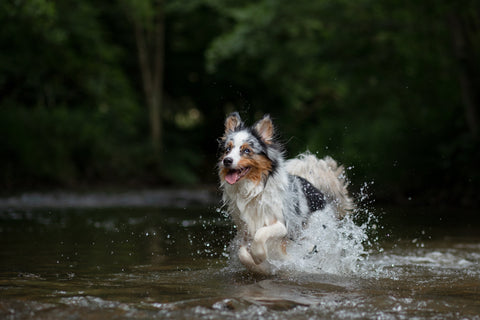
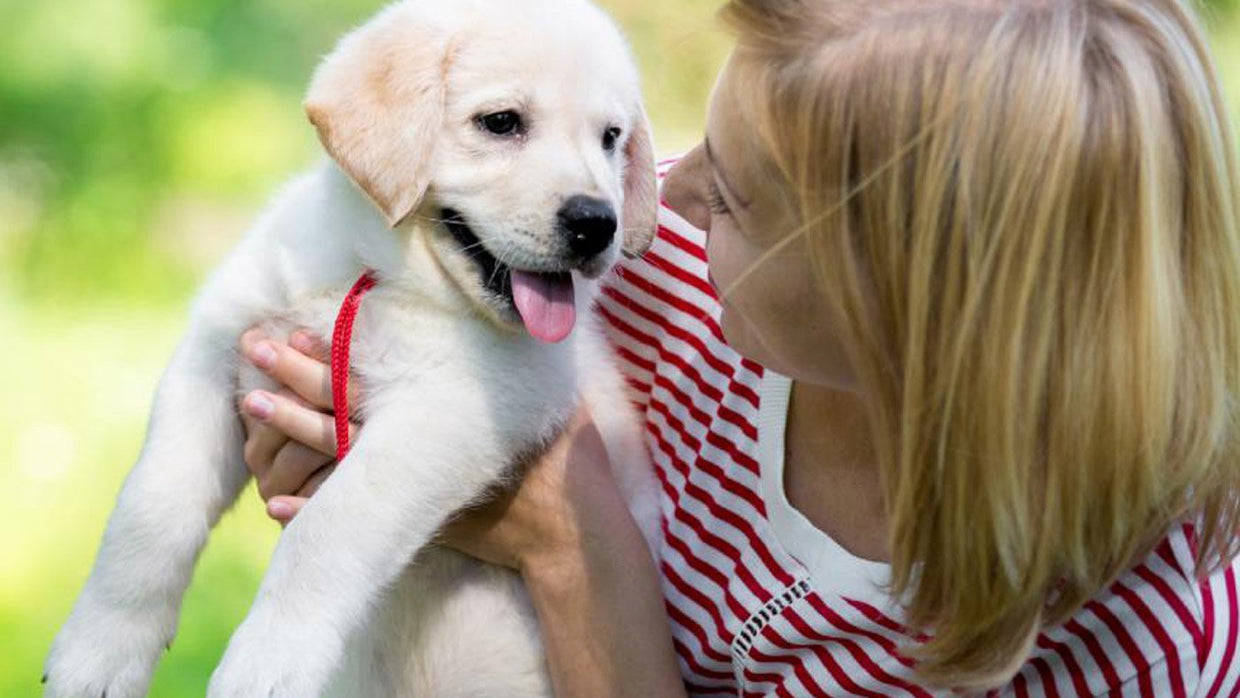
8 top tips for new dog owners
New dog owner? Wondering what the must-knows are about doggie diet, healthcare and exercise? Whether you’re bringing home a puppy or have opened up your home and heart to a rescue dog, here are our top tips for new dog owners.
A happy life together starts with choosing the right best friend. Will you adopt a rescue dog or puppy? Or is your heart set on a specific breed? Once you’ve made your decision, it’s time to think about what your new dog will need for a happy, healthy life. We’ve split our top tips into sections to help: pre-move in shopping, some admin essentials, exercise, diet, building your bond, and some dog owner etiquette as well.
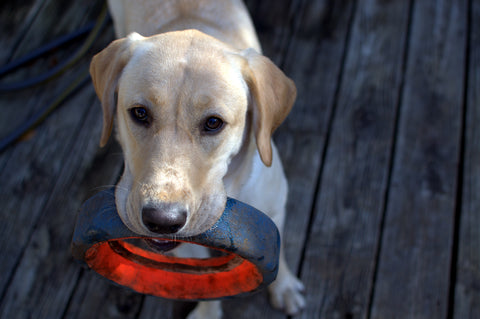
1) New dog owner shopping list
What will you need to buy and before your dog or puppy comes home?
- Collar with tag – this should include your name, address and phone number.
- Lead – you might want to get a normal lead plus a flex lead or long line for more freedom in the park.
- Food of the brand your dog is used to – and some tasty treats. Poo bags.
- Comfy bed – big enough for them to stretch out or curl up.
- Toys – tough toys they can play with unsupervised and feeding toys are great as they’ll keep your dog happily occupied when you’re not at home.
- Travel kit – if you drive, you’ll need either a safety harnesses, car crate or dog guards.
2) Getting your dog admin essentials sorted
There are 5 practical things to think about as soon as you bring your new dog home. As a new dog owner, you’ll need to do some admin to get prepared for your four-legged friend. Double check you’ve sorted these dog essentials:
- Register with a vet
- Vaccinate your dog
- Research pet insurance
- Get sorted with grooming
- Join a good, positive training class or club if your dog is happy to spend time with other dogs – it’s a great way to build your bond.
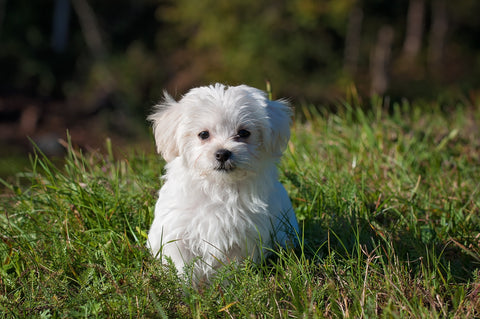
3) How to exercise your new dog
How important is exercise for dogs?
In a word, very. As well as keeping your dog physically fit and at a healthy weight, exercise stimulates your dog’s mind, too. Imagine how bored you might get if you were cooped up indoors all day with no mates, no TV and no internet – that’s how home-alone dogs can feel, which can lead to unhappiness and behavioural problems.
Physically fit in five: Dog walking tips for new owners
- Puppy exercise should be limited – walkies twice a day, for 5 minutes per month in age, until physical maturity, usually around 18 months, but can be earlier for small breed dogs.
- Exercise matters – dogs need regular exercise, at least one walk or run every day.
- Oldies needn’t become couch potatoes – support stiff joints with a supplement, and swap one long walk for two or three short trips. There’s a guide to help here.
- Exercise their brains – turn your phone off and interact with your dog on walkies. Talk, train and build your bond.
- Consider a dog walker – if you work 9-5, get a walker (friend, family or pro!) to visit and break up the day.
4) Bonding with your new dog
It’s really exciting to welcome home a new dog, but building a good relationship takes time and effort from day one. It’s a good idea to join a training class to get some practical tips with this – and have fun learning new things – but to lay the basis for training, you need to establish a good relationship without letting your dog become too dependent.
Dogs are pack animals and can get very dependent on human attention. It’s a good idea to follow some simple rules to avoid behaviour problems down the line. Here are our top tips for new dog owners:
- Humans choose when to start interactions – don’t respond to jumping up, nudges and barking with play or fuss. Ignore it, then respond and treat with food or play once they are quiet and calm.
- Humans choose to finish interactions – it’s up to you to end the game or cuddle.
- Choose a word – ‘enough’ or ‘that’s it’ are good – say it, then ignore them. Most dogs will learn this quickly, and it can be useful to use whenever your dog gets over-excited. It’s also a good idea to teach polite greeting – when you come home only say hello if your dog is quiet. If your dog is excited or greets you over-enthusiastically, ignore until they settle, then say hello.

But of course, one of the best ways to build your bond with your new dog is to get out there and have some fun. Picking up a new doggy-hobby is one of the best ways to do this!
Always be mindful of your dog’s age, breed and any health concerns before starting a new activity, and have a chat with your vet or vet nurse if in doubt, but here are some ideas to get you started:
- Enjoy intellectual pursuits? Get your head around clicker training. Working out the process and designing and practicing new tricks is a great brain workout for dogs and their people!
- Love a serious physical challenge? Try CaniCross, a long distance running sport where dogs and their people are a team.
- Enjoy high-octane team sports? Try flyball. It’s fast, furiously good fun, and a great way to meet new doggie friends.
- Want to build a really strong bond? Agility is a brilliant way to improve your connection whilst getting fit and having fun as part of a welcoming community. Doggie dancing – AKA Canine Freestyle – is another great sport for you. Whatever you decide to try together, remember that the most important thing is to have lots of fun!
5) Good dog owner etiquette
You love your new dog or pup to bits– but have you thought about the wider community? As dog owners, we need to be careful that our best friends don’t cause headaches for others. Here are our tips to help new dog owners learn the ropes of responsible dog ownership:
- Always pick up the poo
It may not be pleasant, but it’s the right thing to do. Buy biodegradable bags if you can and pick up wherever you are – that includes countryside walkies. Don’t hang bags on fence posts or trees if there isn’t a handy bin. It’s a nasty habit, and livestock can eat these bags with fatal consequences. It’s also a good idea to learn the Countryside Code.
- Train a reliable recall
Don’t let your dog become an embarrassing, potentially dangerous pest like the infamous Fenton!
- Don’t expect everyone to share the love
Not everyone is a dog person. And that’s OK. As dog owners, we have a responsibility to make sure the people around us are happy and comfortable too – so don’t let your dog jump up on people or furniture, and be mindful that some people are scared of dogs.
- Yellow dog
A dog wearing yellow means ‘give me space’ – responsible dog owners respect this signal and stay away. Though your puppy or dog may be happy around others, don’t forget not to let them approach other ‘yellow dogs’ or dogs who are on their lead if your dog is off the lead. Though your new best friend may be friendly, the dog they approach might not be!
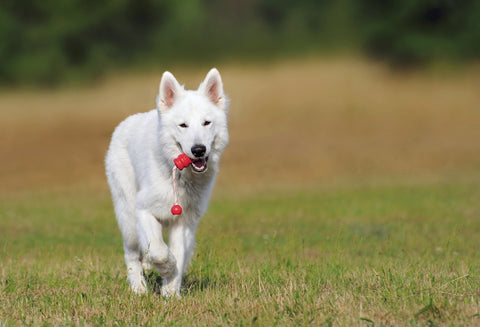
6) Healthcare is an essential
Get registered with a local vet. This is our number one tip when it comes to helping your dog enjoy a happy, healthy life. They will give your new best friend a check-up and make personal recommendations.
If your dog isn’t neutered yet, it’s worth discussing this important procedure to prevent accidental pregnancies, reduce the risks of certain cancers, and help male dogs feel calmer and less frustrated. Your vet or vet nurse will also be happy to talk through a doggie healthcare routine, which should include:
- Vaccinations – vaccination can save your dog’s life, and skipping boosters reduces immunity and can invalidate your pet insurance.
- Tooth brushing – getting into a regular routine from puppy-hood is ideal, but it’s never too late. Aim for a at least 4 times per week.
- Checking ears regularly – look out for excess wax, discharge or any unusual smells.
- Supplements for dog joints, skin and digestion – our premium all-natural formulas can help your best friend feel their absolute best every day!
- Checking for lumps, bumps and sore spots – run your hands over your dog’s whole body at least once a week to check for changes.
- Claw and paw care – check for long claws or sore spots, and clip claws if required. If they don’t like clippers, take them to a groomer for a pawdicure, or use a file!
- Preventative pest control – use worming tablets and flea treatment all year round. We use calendar reminders to keep on track.
- Keeping their coat clean and comfortable – groom regularly depending on your dog’s needs. Short coated breeds will simply need a quick brush, but others need lots of care.
7) Dog diet tips for new owners
What should dogs eat?
Dogs are omnivores, so should eat a mix of protein (meat or fish), carbohydrates (starchy foods) and nutrient-dense fruit and veg. Thankfully, it’s easy to meet their nutritional needs with a good quality complete food.
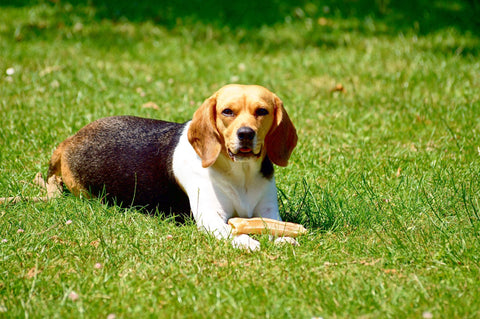
Always bear in mind these three dog-diet essentials:
- Buy the best you can afford
- Look for natural formulas
- Avoid foods that contain lots of cereals, fillers, colourings and flavourings.
Consider your new dog’s age and activity level, and make sure they’re on an appropriate puppy, adult, working dog or older dog mix. Do your research, read reviews and talk to your rescue centre, vet or vet nurse if you need extra advice. We’re always happy to talk about doggie diets too!
Digestive episodes and dogs
One of the most common experiences the families of new dogs talk to us about is grumbling tummies. There are many reason a dog’s tum may not be feeling 100% when they change homes, including change of food, change of environment and dietary intolerances – however probiotics for dogs can really help. Learn more here.
Dogs and human food
Sharing the family dinner with the dog isn’t a good idea, both in terms of nutritional balance and calories. A sausage to a medium-sized dog is the equivalent of one and a half chocolate bars to a person, and may contain ingredients that aren’t good for dogs, like onion, preservatives and spices.
8) Start dog training early
The best way to train your dog, make new canine friends and learn the best top tips for new dog owners is to find a good training class. Your vet or vet nurse will be able to suggest the best ones in your area – make sure the trainers only use positive, reward-based methods though.
Classes are great as they give your dog or puppy the opportunity to socialise with other dogs, but you can also go it alone. Recall is the best place to start. Recall – or coming when called – can be the most challenging piece of training you’ll do with your dog. But it’s also the most important, as it gives your dog freedom and keeps them safe.
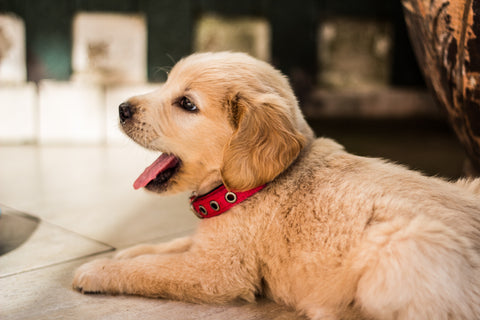
How to train a recall like a pro
Take your dog to a quiet, controlled space – ideally not a busy part of the park! Be prepared with their favourite food, treats or toy, and keep them on a long line (lead or long, light piece of rope). Then get started…
- Call your dog using their name and command word – ‘Maddie come’.
- Show the incentive – treat or favourite toy.
- Give a gentle tug on the long line if they don’t come immediately.
- Repeat the command one more time using exactly the same words – ‘Maddie come’.
- If they still don’t come, start moving in the opposite direction making excited noises.
- When they do come, reward and give lots and lots of fuss and praise.
- Always ‘release’ them with a second command – something like ’Off you go.’
Now practice, practice, and practice some more, always making it fun for your dog. Extra tips polish a rock-solid recall include...
- Think dog – make coming back worth your dog’s while, with treats, toys or a game.
- Keep sessions short and fun to avoid losing concentration.
- Be super-positive – you must be the most exciting, desirable thing in your dog’s world as you train in a recall, so always be a happy exciting destination.
- Practice away from fun distractions – some dogs are more motivated by other dogs than their people.
- Use the 9/10 rule – don’t only recall to put your dog on the lead or end a walk. ‘Release’ them for more fun 9/10 times over the course of your walk.
We hope you’ve found our new dog owner tips useful, and would love to meet your new best friend on Facebook, Instagram and Twitter. If you’ve got some doggie pics and videos to share, you’ll make our day! And if you have a question, please do pop it in the comments below...




